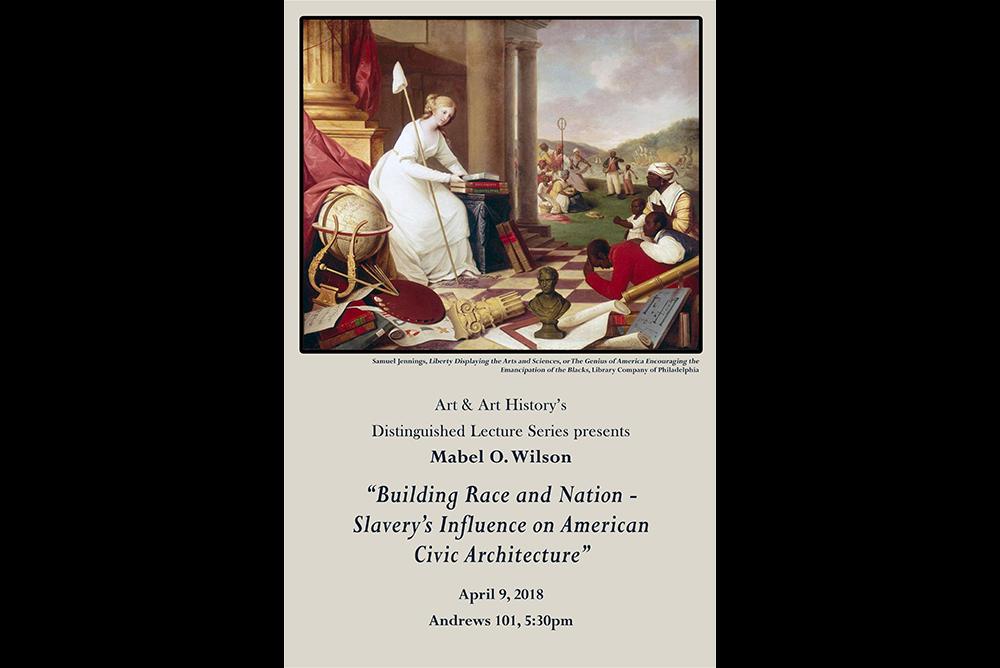Arts & Sciences Events
[PAST EVENT] Art & Art History's Distinguished Lecturer Mabel O. Wilson
Access & Features
- Open to the public

In the United States, physical attributes of race linked to one?s capacity for reason influenced social perceptions and legal definitions that determined who deserved the rights and privileges of freedom and who was destined to toil enslaved in perpetuity. Paradoxically, enslaved blacks, defined solely as ?property? lacking the proper subjectivity to be self-conscious and self-possessed, built a significant number of the nation?s civic buildings designed by the nation?s first architects: Thomas Jefferson (1743 ? 1826), Benjamin Henry Latrobe (1764 ? 1820), and William Thornton (1759 ? 1828). The history of how race informed the discourses on slavery, nationalism, aesthetics, and architecture during this formative period comprises the core thesis of "Building Race and Nation: Slavery's Influence on Early American Civic Architecture.?
Contact
[[ssayek, Sibel Zandi-Sayek]]
